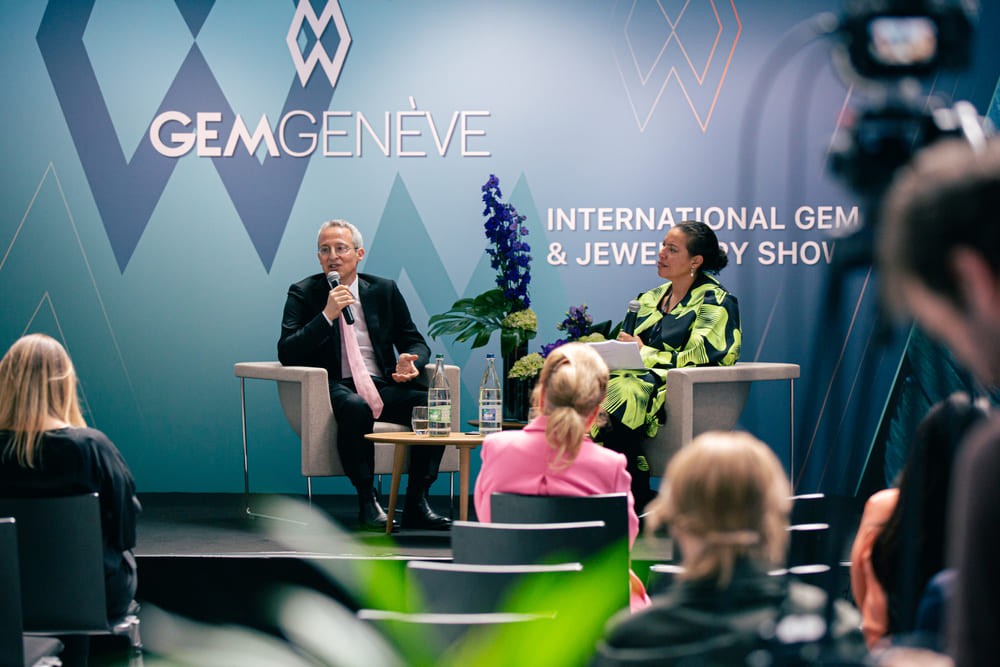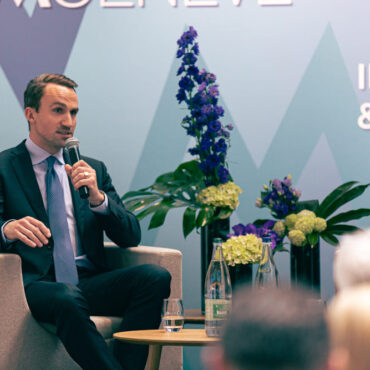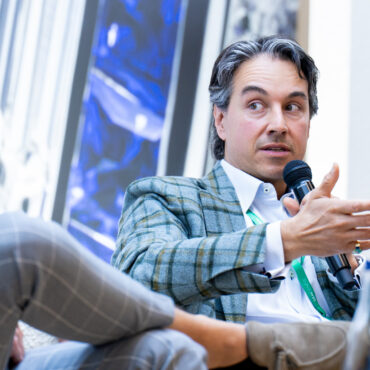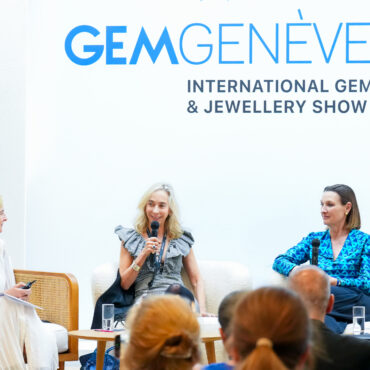The interview between Mrs Melanie Grant, Executive Director of the Responsible Jewellery Council, and Mr Alan Adler, CEO of Adler Jewellers, delves into the intricacies of the jewellery business and explores the key elements that contribute to a brand’s success and longevity. Mrs Grant, an economist specialising in jewellery, expresses her interest in what sets successful and desirable companies apart. Intrigued by Mr Adler’s relatively low-profile status, she invites him to discuss the economics of the jewellery industry and the requirements for a brand to survive across generations.
The conversation begins by delving into the history of Adler Jewellers, tracing its roots back to its founder, Jack Adler. Jack started as a goldsmith apprentice in Vienna during the 1800s. After training in Vienna, he returned to Istanbul, the capital of the Ottoman Empire, and opened a boutique. Istanbul was a hub for luxury items sourced from Europe, making it a natural choice for Jack to establish his business. The boutique attracted customers not only from Ottoman families but also from Russian and European backgrounds. The Adler brand distinguished itself by bringing European-inspired styles, influenced by the emerging Art Deco and Art Nouveau trends, to Istanbul while incorporating local customs and aesthetics.
Mrs. Grant then explores the influence of different cultures on Adler Jewellers’ business and aesthetics. Mr Adler explains that the business progressively incorporated Ottoman motifs, such as tulips and designs seen in palaces and mosques, into their style. The ability to blend styles from various cultures and integrate them into their designs has become a hallmark of the Adler brand.
The conversation shifts to the upsides and downsides of working in a family business. Mr Adler acknowledges that family-owned businesses have a special quality due to their continuity and the visibility of having a family member at the forefront. However, he also highlights the challenges they face, particularly in succession planning and navigating external factors such as political tensions or changes in management. The competitive nature of relationships within a family business is discussed. Mr Adler notes that it varies among families, but trust and love are crucial for productive discussions, decision-making, and conflict resolution.
The interview then explores the international aspects of Adler Jewellers’ business. Mr Adler explains that the company has historically served foreign customers, whether in Istanbul or Switzerland, regardless of location. Even in Switzerland, a significant portion of their annual revenue comes from foreign buyers travelling to Switzerland or the Adler team travelling worldwide to meet clients.
Mrs Grant inquires about the decision to venture into different materials like aluminium and titanium and how it has impacted the business. Mr Adler reveals that the company shifted to a subcontracting model for production, working with four different workshops with which they have maintained long-standing relationships. While not owning their workshops may present challenges, it allows for collaboration and exchanging ideas and innovations with other artisans. He also highlights the contributions of Aurelio Balestreri, an Italian collaborator, and his daughters, who have played a significant role in integrating innovative materials into Adler Jewellers’ designs.
The discussion moves on to the family’s decision to establish themselves in Geneva. Mr Adler explains that they chose Switzerland for its stability, respect for property rights, and favourable business environment. Additionally, the influx of customers from the Middle East in the 1970s further solidified Switzerland, specifically Geneva, as an ideal location for their business. The Adler family’s warm and welcoming approach to customers has been instrumental in their success, and they strive to maintain this personalised service.
Mr Adler shares his vision for the future of Adler Jewellers, considering the evolving landscape of the jewellery industry. He acknowledges the competition from larger luxury brands entering the market and emphasises the importance of offering services these brands may not excel at. Customisation and co-creation with customers are key focuses, as well as remodelling existing jewellery to breathe new life into inherited pieces. Sustainability is also a priority, committed to reusing existing elements to create new jewellery.
Mrs Grant brings up Mr Adler’s educational background and diverse career experiences before joining the family business. Mr Adler stresses the importance of gaining different perspectives and mental models to make informed decisions. While specific technical knowledge is necessary for the jewellery industry, he encourages individuals to broaden their understanding through experiences in various fields.
The interview concludes with a discussion of the impact of globalisation on the jewellery business. Mr Adler acknowledges that Adler Jewellers serves customers at the higher end of the wealth spectrum, and global competition is a reality. Staying relevant requires meeting different people, engaging in deep conversations, and considering diverse perspectives. Mr Adler encourages the exploration of productive disagreements, as they can provide valuable insights and broaden one’s understanding of the world.
In summary, the interview with Mr Alan Adler provides in-depth insights into the history, evolution, and future vision of Adler Jewellers. It highlights the significance of cultural integration, trust within a family business, global competition, personalised services, sustainability, and the importance of gaining diverse perspectives in the jewellery industry. The success of Adler Jewellers can be attributed to its ability to adapt and blend styles from different cultures, its focus on personalised services and customisation, and its commitment to sustainability. The interview showcases a family-owned business’s unique dynamics and challenges, emphasising the importance of trust and love in navigating discussions and decisions. Mr Adler’s vision for the future involves co-creating jewellery with customers, remodelling existing pieces, and staying relevant in a globalised industry through engagement with diverse perspectives.





